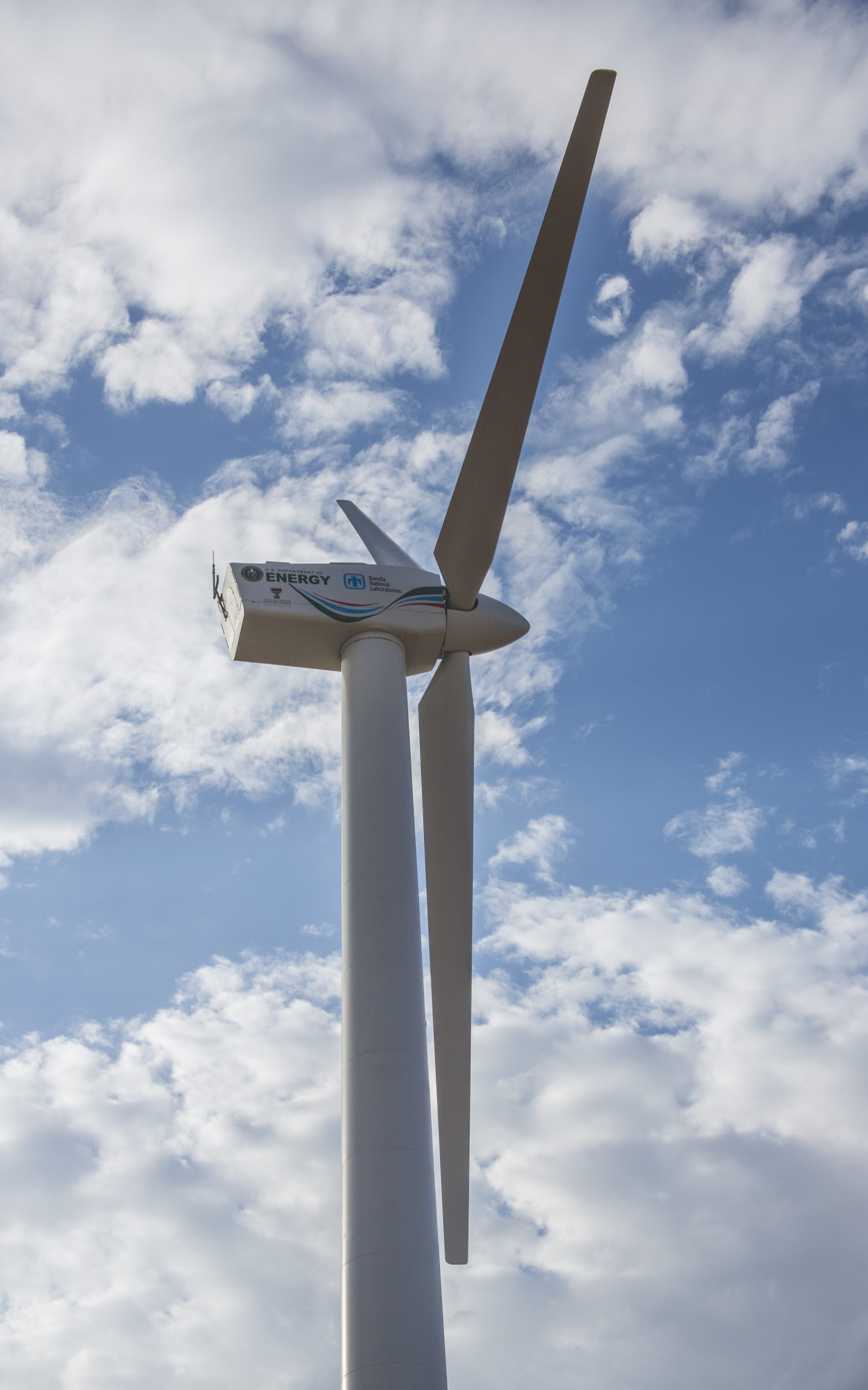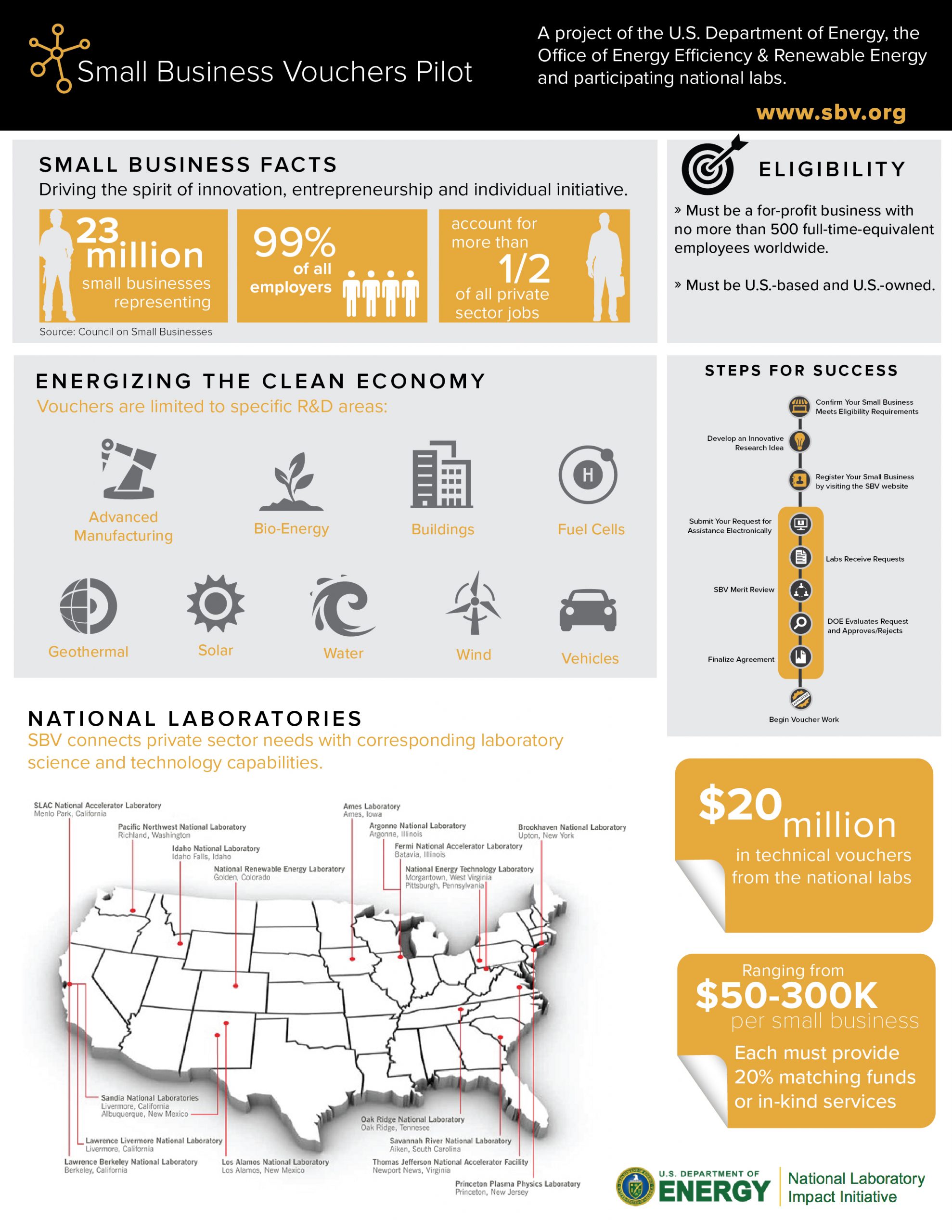ALBUQUERQUE, N.M. — Small businesses in the clean-energy sector can apply for technical help from Sandia National Laboratories and other U.S. Department of Energy (DOE) labs through a new pilot.

David Danielson, DOE assistant secretary for Energy Efficiency and Renewable Energy (EERE), announced the launch of the Small Business Vouchers (SBV) Pilot website on Wednesday, Sept. 23, at Oak Ridge National Laboratory in Tennessee. The pilot, part of EERE’s National Laboratory Impact Initiative, aims to help small businesses bring next-generation clean energy technologies to the market faster by giving them access to expertise and tools at national labs.
Earlier this year, DOE chose Sandia as one of the five leads in the $20 million pilot, along with the National Renewable Energy Laboratory and Lawrence Berkeley, Oak Ridge and Pacific Northwest national laboratories.
Sandia was awarded the pilot in the sectors of solar energy, wind and geothermal technologies, and will receive funding to allocate to small business applicants. “Sandia is excited to manage an initiative that will allow the labs to help clean energy companies across the country,” said Jackie Kerby Moore, Sandia’s manager of technology and economic development.
Companies can apply to Sandia through the SBV website for $50,000 to $300,000 in vouchers that can be used for a variety of technical assistance. The best business proposals focusing on a specific technical challenge will be selected in a competitive process. Successful companies will be required to provide a 20 percent cost share or in-kind services.
Nationwide, the pilot focuses on helping small businesses developing technologies in the areas of advanced manufacturing, buildings, vehicles, wind, water, bioenergy, fuel cells, geothermal and solar. To be eligible to apply, businesses must be U.S.-based and -owned with no more than 500 full-time employees worldwide. A total of three cycles of competitions will be offered to interested small businesses in 2015 and 2016.

Sandia offers a range of expertise and facilities to support research in fields related to the SBV goals.
Solar photovoltaic (PV) research uses Sandia’s Photovoltaic Systems Evaluation Laboratory and Distributed Energy Technologies Laboratory to evaluate and improve performance, reliability, cost effectiveness and grid integration of PV systems.
Sandia also does modeling and analysis of PV components and systems, PV performance modeling and research to reduce and optimize non-hardware balance-of-system components and costs. It also explores grid integration and advanced inverters to support large-scale deployment of PV in grid-tied power systems, and contributes to the development of national and international PV codes and standards.
Applied research in Sandia’s wind energy program helps increase the viability of land-based and offshore wind energy by improving performance and enhancing reliability to reduce costs. The lab focuses on wind blade and rotor materials and design, component and system reliability, plant performance and operations and maintenance. Sandia also researches wind turbines and radars to help optimize wind power siting decisions, and contributes to wind power-related standards.
Sandia’s geothermal research aims to reduce the cost and risk associated with geothermal resources development to expand the nation’s use of geothermal energy. The lab’s work centers on development and investigation of improved well construction and completion technologies, such as drilling technology and diagnostics, high temperature electronics and tools, geothermal systems modeling, advanced drill bits, reservoir stimulation technologies and wellbore stability.
Businesses are invited to apply at the SBV website.